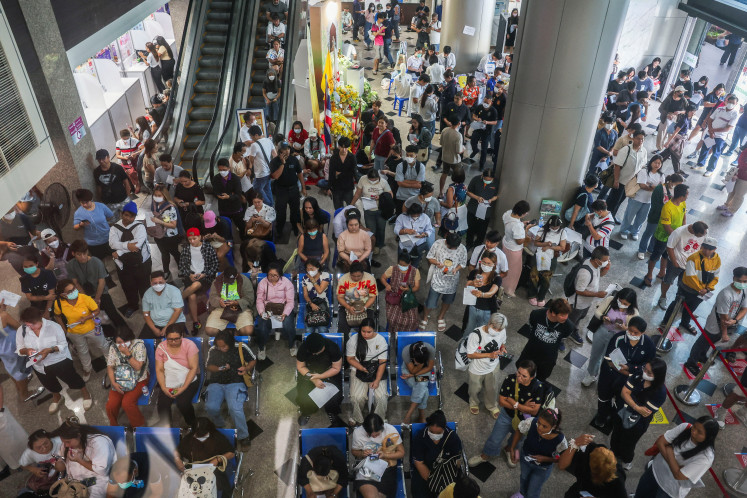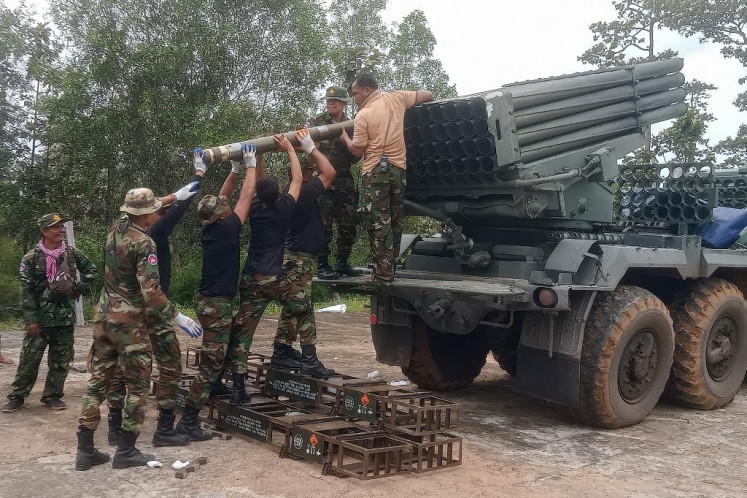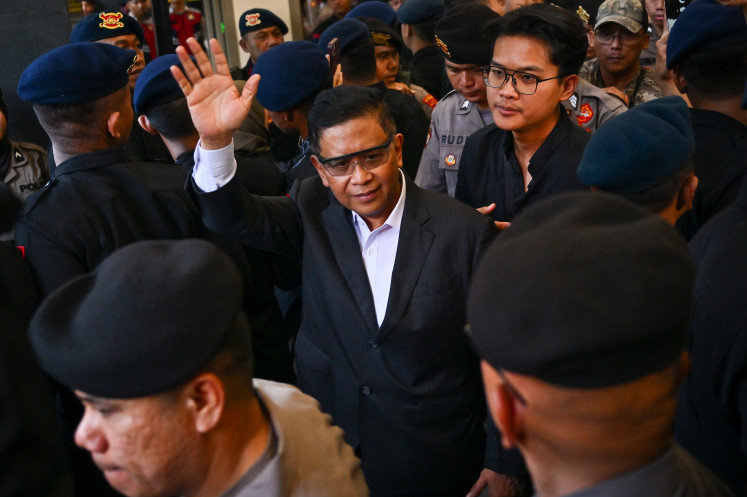Popular Reads
Top Results
Can't find what you're looking for?
View all search resultsPopular Reads
Top Results
Can't find what you're looking for?
View all search resultsPGN raises gas prices almost 50 percent in West Java
State gas distributor PT Perusahaan Gas Negara (PGN) says it has increased the price of gas for customers in West Java almost 50 percent after renewing contracts with producers in South Sumatra
Change text size
Gift Premium Articles
to Anyone
S
tate gas distributor PT Perusahaan Gas Negara (PGN) says it has increased the price of gas for customers in West Java almost 50 percent after renewing contracts with producers in South Sumatra.
Gas would be sold for an average of US$10.13 per million British thermal unit (Btu) in West Java, up 48.97 percent from $6.80, according to PGN corporate secretary Heri Yusup.
“The price increase is necessary, considering rising costs at the upstream level where we buy gas. For gas producers, we have requested that they also add to the gas volume for us in compensation for the price increase,” he said.
As reported earlier, PGN has been paying $5.60 per million Btu for gas from the Grissik field in the Corridor bloc in South Sumatra operated by US-based ConocoPhillips, up 202 percent from $1.85. The price will increase to $6.50 per million Btu in 2014.
Meanwhile, the price of gas from the Pagardewa field in South Sumatra operated by Pertamina
EP has increased to $5.50 per Btu, up 150 percent from $2.20 per million Btu.
As with the gas supply contract from Grissik, the price for gas from Pagardewa will also increase to $6 per million Btu, albeit a year earlier, in 2013.
Gas from the fields is channeled to PGN’s customers in West Java through the South Sumatra – West Java pipeline.
In the first quarter of 2012, the company’s gas sales volume hit 787 billion Btu per day nationwide, with power plants as the company’s main receivers. Transmitted gas volume was 861 billion Btu per day. Most gas was transported by PGN subsidiary PT Transportasi Gas Indonesia.
Indonesian Employers Association (Apindo) chairman Sofjan Wanandi criticized PGN for increasing prices without negotiating with businesses, something he said would hit their bottom line.
“We understand that PGN has to increase prices to pay its investments, but we hoped there would be negotiation to find a win-win solution,” he told The Jakarta Post.
Sofjan said he expected that the company to raise prices gradually so industries could adjust without financial pressure.
Separately, Achmad Widjaya, the secretary-general of the Association of Gas-Using Industries (FIPGB), said that the association would accept the increase as long the company could fulfill its production quotas for each customer.
“We understand that the price increase is necessary, because at the upstream level prices are no longer economical. But we hope we can receive gas based on the quota. Now, we only get around half,” he said.
Domestic businesses currently receive 565 billion Btu a day, about 65 percent of the 863 billion Btu a day needed.
Achmad said that PGN had promised to fulfill local industrial gas needs, and the association was looking forward for the realization.
PGN currently operates 5,800 kilometers of transmission and distribution pipelines across Indonesia, dominating around 90 percent of the gas infrastructure in the country.
—JP/ Rangga D. Fadillah










